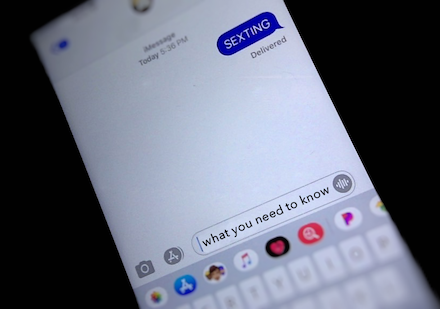
Editor’s Note: As Now Habersham first reported on November 18, there is a sexting investigation currently underway in several Habersham County schools. A pornographic video was circulated among students. Local law enforcement is investigating to determine who is responsible for distributing the material.
In light of that revelation, Now Habersham reached out to the Habersham County Sheriff’s Office and requested more information to help students and parents – and the community at large – better understand the legal consequences of such online behavior and to, hopefully, help guide parents in how best to address it.
Lt. Murray Kogod of the Habersham County Sheriff’s Office wrote the following article. In a day and age when so many of us are just trying to stay on top of and navigate the ever-changing world of technology, we hope that this helps. We urge you to use this to start a dialogue with your children to help them avoid the temptations, dangers, and threats of living in an electronically socially connected world.
In today’s schools, smartphones have become as commonplace as backpacks. Students live in a world of constant connectivity. Through the use of popular apps such as Snapchat and Instagram, they share information and photos. They message their friends instead of calling. However, without proper oversight and guidance from their parents, students often make poor choices about what they’re posting, sharing, or texting. And, one impulsive decision can affect their lives for years to come.
“Ultimately, the responsibility lies with the parents. Children do not possess the requisite life experiences to be given unleashed access to the internet world.”
One emerging trend is teens sending sexually explicit content to their peers. To many of them, doing this is a normal way to interact. They see nothing wrong with sending these images, especially if “everyone is doing it.” Other teens do it because they view it as a joke or feel pressured to do so. Meanwhile, as many as one in four teens receive sexually-explicit texts and emails.
What teens do not realize is that there are serious legal and school consequences for such conduct.
Potential School Ramifications
The Habersham County School System Student Rules of Conduct address this issue in relation to school consequences. Specifically, Rule 1(k) reads: Disruption and Interference with School – Use profanity, vulgarity, or obscenity, or sexually harass others. Such use includes profane, vulgar, obscene words or gestures, indecent exposure, possession and/or distribution of profane, vulgar, or obscene material, or other similar materials, items, or gestures. This includes, but is not limited to, inappropriate electronic communication.
Depending on the nature and extent of the violation, the school consequences can result in the child being sent to the alternative school for the remainder of their high school experience.
Sending Sexually Explicit Communications Violates Georgia Law
A student under the age of 18 who takes nude or partially nude photos or video(s) of him or herself is committing the illegal act of Manufacturing Child Pornography. Sending the image to someone else or simply showing the image to another minor constitutes Transmitting Child Pornography. Simply having an image of a nude or partially nude juvenile constitutes Possession of Child Pornography.
“If parents are going to supply their children with a smartphone, then they need to consistently instill ‘smart’ behaviors.”
Sending a nude or partially nude photo or video of a person, without the consent of the person depicted, or photoshopping a picture of someone to a nude picture or inappropriate behavior and circulating that image(s) to others constitutes Transmission of Sexually Explicit Content without Consent of Person Depicted.
Other Concerns
Sending a nude or partially nude photo or video can lead to online bullying, extortion and it can open the door for sexual predators. Additionally, once photos are put online, they are there forever and could re-emerge years later (for example, in a prospective job background check).
Education and Monitoring are Key to Prevention
In an effort to remain proactive and maintain an open line of communication with the students, the Habersham County School System, working in conjunction with the Habersham County Sheriff’s Office, made several assembly-type presentations at the high school and ninth grade academy. The goal of the assemblies was to educate students about the potential legal ramifications and code of conduct violations that would arise from such conduct. Both school personnel and law enforcement participated in the assemblies.
According to Sheriff Joey Terrell, “Ultimately, the responsibility lies with the parents. Children do not possess the requisite life experiences to be given unleashed access to the internet world. If parents are going to supply their children with a smartphone, then they need to consistently instill ‘smart’ behaviors. This can only be done by parents staying involved in their children’s lives and by giving ongoing guidance and oversight to understand and avoid potential internet pitfalls.”






